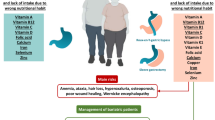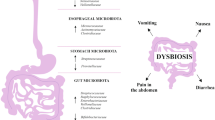Summary
Short bowel syndrome is characterized by malabsorption of nutrients, vitamins en trace elements, resulting in growth retardation. Children with short bowel syndrome are often dependent on total parenteral nutrion (tpn). Parenteral nutrition can have major adverse effects, such as venous access problems, central venous line infections and tpn-related liver damage. Treatment is focused on rehabilitation of the intestinal function and optimal enteral feeding. Research is directed towards optimization of dietary measures and trophic hormones to stimulate intestinal adaptation.
Samenvatting
Het kortedarmsyndroom wordt veroorzaakt door malabsorptie van macronutriënten, vitaminen en spoorelementen en gaat gepaard met gewichtsverlies. Kinderen met deze aandoening zijn vaak afhankelijk van parenterale voeding, hetgeen weer risico geeft op levensbedreigende complicaties. Aanpassingen in het dieet, maar ook hormoontherapie gericht op de adaptatie van het epitheel, zouden de opnamecapaciteit van de darm kunnen verbeteren, en daarmee afhankelijkheid van parenterale voeding kunnen voorkomen.
Similar content being viewed by others
literatuur
Messing B, Pigot F, Rongier M, et al. Intestinal absorption of free oral hyperalimentation in the very short bowel syndrome. Gastroenterology 1991;100:1502-8.
Jeppeson PB, Mortensen PW. Experimental approaches: dietary and hormone therapy. Best Pract Res Clin Gastroenterol 2003;17:1041-54.
Norgard DI, Hansen BS, Mortensen PB. Importance of colonic support for energy absorption as small bowel failure proceeds. Am J Clin Nutr 1996;64:222-31.
Jeppesen PB, Mortensen PB. The influence of a preserved colon on the absorption of medium chain fat in patients with small bowel resection. Gut 1998;43:478-83.
Bohane TD, Haka-Ikse K, Biggar WD, et al. A clinical study of young infants after small intestinal resection. J Pediatr 1979;94:552-8.
Briet F, Flourié B, Achour L, et al. Bacterial adaptation in patients with short bowel and colon in continuity. Gastroenterology 1995;109:1446-53.
Marteau P, Messing B, Arrigoni E, et al. Do patients with short-bowel syndrome need a lactose-free diet? Nutrition 1997;13:13-6.
Lifschitz CH. Growth hormone for short bowel adaptation: is less more effective than more? [editorial]. J Pediatr Gastroenterol Nutr 2004;38(1):111-2.
Jeppesen PB, Sanuinetti EL, Buchman A, et al. Teduglutide (ALX-0600), a dipeptidyl peptidase IV resistant glucagon-like peptide 2 analogue, improves intestinal function in short bowel syndrome patients. Gut 2005;54(9):1224-31.
Severijnen RSVM, Swieten ECAM van, Tolboom JJM, et al. Contribution of growth hormone treatment in children with a short small bowel [thesis]. Short small bowel in children. 2004.
Byrne TA, Wilmore DW, Iyer K, et al. Growth hormone, glutamine, and an optimal diet reduces parenteral nutrition in patients with short bowel syndrome: a prospective, randomized, placebo-controlled, double-blind clinical trial. Ann Surg 2005;242 (5):655-61.
Lifschitz C, Dugan C, Langston C, et al. Growth hormone therapy in children with short bowel syndrome: a randomized placebo-controlled trial. Gastroenterology 2003;124:A64.
Nucci AM, Finegold DN, Yaworski JA, et al. Results of growth trophic therapy in children with short bowel syndrome. J Pediatr Surg 2004;39(3):335-9.
Sigalet DL, Martin G, Meddings J, et al. GLP-2 levels in infants with intestinal dysfunction. Pediatr Res 2004;56(3):371-6.
Weiming Z, Ning L, Jieshou L. Effect of recombinant human growth hormone and enteral nutrition on short bowel sundrome. JPEN J Parenter Enteral Nutr 2004;28(6):377-81.
Author information
Authors and Affiliations
Corresponding author
Additional information
Dr. J.A.J.M. Taminiau, kinderarts-gastro-enteroloog, afdeling Kindergeneeskunde, Emma Kinderziekenhuis/amc, Amsterdam. Prof.dr. D. Tibboel, afdeling Kinderheelkunde, Intensive Care Kinderchirurgische Groep, Erasmus mc-Sophia Kinderziekenhuis, Rotterdam. Dr. E.H.H.M. Rings,, kinderarts-gastro-enteroloog, afdeling Kindergeneeskunde, Kindergastro-enterologie, Beatrix Kinderkliniek, umcg, Groningen.
Correspondentieadres: Dr. E.H.H.M. Rings, afdeling Kindergeneeskunde, Kindergastro-enterologie, Beatrix Kinderkliniek, umcg, Postbus 30001, 9700 RB Groningen
Rights and permissions
About this article
Cite this article
Taminiau, J.A.J.M., Tibboel, D. & Rings, E.H.H.M. Nieuwe ontwikkelingen in de behandeling van het kortedarmsyndroom bij kinderen. KIND 74, 188–190 (2006). https://doi.org/10.1007/BF03061629
Issue Date:
DOI: https://doi.org/10.1007/BF03061629




